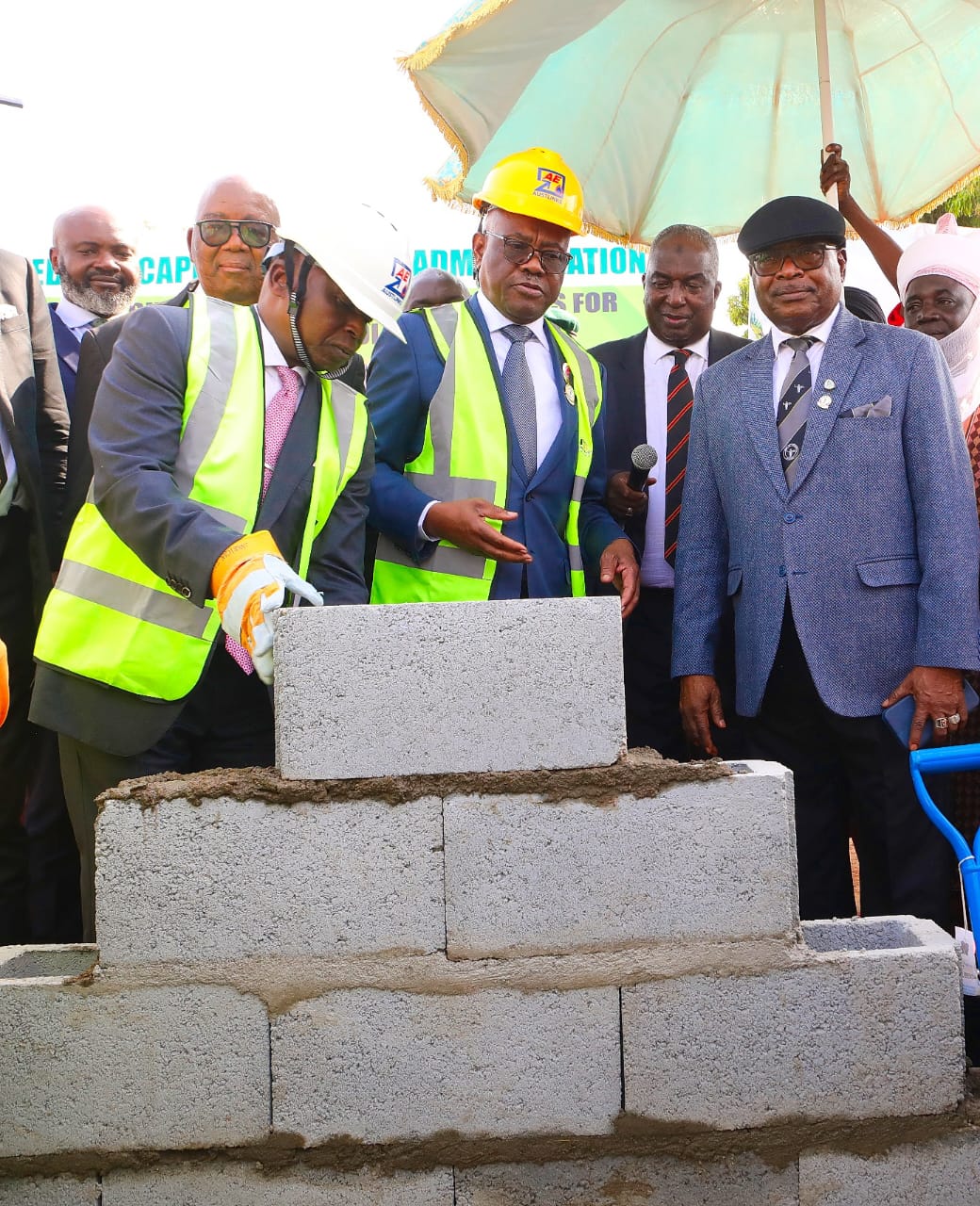By Jabiru Hassan, Kano.
As the world commemorate the International Anti-Corruption Day with the theme: Uniting with Youth Against Corruption: Shaping Tomorrow’s Integrity, the Centre for Anti-Corruption and Open Leadership (CACOL) has said that the new tax reform bill being debated across the country must reflect the principles of equity, justice and fairness necessary ingredients for maintaining stability and fairness in the allocation of the nation’s resources to support weaker state economies and promote national cohesion.
In a statement signed by the Centre’s Chairman, Mr. Debo Adeniran, it also asked the Revenue Mobilisation Allocation and Fiscal Commission (RMAFC) to urgently address the issues of derivation which is generating heated debate in the country adding that it is only RMAFC that has the Constitutional mandate to produce formulae for sharing revenues, including VAT stressing that any deviation from this constitutionally backed process is both inappropriate and potentially unconstitutional.
Mr. Adeniran observed that Section 162 (2) of the 1999 Constitution of the Federal Republic of Nigeria (as amended) empowers the Revenue Mobilisation Allocation and Fiscal Commission to determine the formula for the equitable sharing of revenue among the three tiers of government by ensuring that such formula reflects the principles of equity, justice and fairness.
“It should be noted that the Constitution, being supreme, does not envisage that any other Act of Parliament such as the VAT Act could assume this responsibility as any such attempt would contravene the Constitution since RMAFC remains the sole arbiter in producing allocation formulae that are equitable, just and fair for the three tiers of Government.”
“Let me unequivocally state that any deviation from a formula crafted by the RMAFC risks violating constitutional provisions and undermining the Commission’s role as the impartial arbiter of revenue allocation in Nigeria”.
According to CACOL, the proposed bills will significantly bolster the Commission’s efforts and the nation’s drive for domestic revenue mobilization capable of integrating untapped revenue sources, including contributions from the informal sector, into the tax net.
Additionally, these reforms will enhance Nigeria’s revenue-to-GDP ratio, positioning the country more favourably among nations with high fiscal performance that could help address Nigeria’s fiscal challenges by elevating the country’s revenue generation and financing sustainable development.
CACOL noted that since the
existing VAT system prioritizes revenue pooling and formula-based distribution over strict derivation principles, RMAFC as an impartial arbiter in the allocation of national resources should as a matter of urgency wade into the matter by aggregating the different views generated from the debate towards the formulation of a new acceptable VAT Formulae that would address the concerns of all Stakeholders; reflect principles of equity, justice and fairness; and provide support for states with weaker economies to promote national cohesion and equitable benefits for all tiers of government without bias or favouritism.
“Any attempt to assign arbitrary percentages for VAT allocation, whether vertically among the tiers of government or horizontally among states and local governments, is both impractical and unconstitutional and ignoring the need to support less economically developed states and regions is capable of undermining national unity and equity in revenue-sharing”.
CACOL proffered far reaching recommendations on resolving the impasse. The recommendations include empowering RMAFC to finalize a VAT allocation formula in line with its constitutional mandate, ensuring an equitable approach for all stakeholders; constitutional adherence to the RMAFC’s framework as against arbitrary determinations as stipulated in the VAT Act or the proposed bill which is threatening the unity of the country; stakeholder engagement to foster dialogue among the federal, state, and local governments to secure consensus on the RMAFC’s proposed formula, thus reducing tensions and ensuring broad acceptance.
Other recommendations include avoiding legislative overreach by reinforcing the constitutional mandate of the RMAFC and discouraging any legislative or executive measures that undermine its authority; adopting digital tracking systems that tags VAT collections to end-user locations, using tools like electronic invoicing and transaction monitoring; and the review of VAT laws by amending legislation to clarify derivation rules for interstate transactions.
It should be noted that VAT remains a critical revenue stream for all tiers of government, and its allocation must adhere to constitutional provisions to prevent inequities and national discord. By affirming the RMAFC’s role in determining the VAT revenue-sharing formula, the legislators would have demonstrated commitment to constitutional governance and equitable fiscal management.
We firmly believe that VAT as one of Nigeria’s major revenue sources, remains vital to the fiscal stability of all tiers of government. Therefore, resolving the derivation issue through a constitutionally grounded and equitable formula will enhance national unity, promote fairness, and reinforce trust in the revenue-sharing system.
The Centre also lauded the transformational efforts of President Bola Ahmed Tinubu for advancing tax reforms through innovative ideas and steadfast commitment to repositioning the revenue base of the country which reflects the President’s visionary leadership in enhancing the nation’s fiscal stability.
Speaking on the theme of this year’s International Anti-Corruption Day, Mr. Adeniran highlighted the vital role young people can play in the fight against corruption noting that “While young people are significantly affected by corruption, they also have the potential to become powerful agents of change in the fight for a future rooted in integrity.
Young people must demand accountability and actively participate in anti-corruption efforts. By promoting integrity and ethical behaviour within their social circles and challenging small-scale corruption at the community level, they can also drive meaningful change.”





